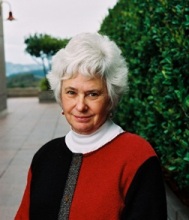
September 15, 2006
Dear Developmental Biologists,
This is an exciting year for the Society for Developmental Biology, because we are expanding our horizons and formally interacting with other developmental biology societies in the hemisphere to achieve our mission, which is to provide a forum for sharing our discoveries and concerns, and for explaining to non-specialists what developmental biology is and why it is relevant in our lives. I encourage those of you who are not yet members to join the Society. Membership application forms are available on this website: http://www.sdbonline.org/pdf/2006_Member_App.pdf. And I invite all of you to send me your suggestions for how the SDB can do more for the field and the community, and to encourage you to volunteer to help us fulfill our mission.
I am happy to report that the preliminary program of the First Pan American Congress in Developmental Biologyis now available on the meeting website (http://www.sdbonline.org/PACDB/PACDB.htm). I hope that you will come to this historic event, which will be held in Cancun, Mexico, June 16-20, 2007, and will bring together for the first time our Society with the Sociedad Mexicana de Biolog�a del Desarrollo (SMBD) and the Latin American Society of Developmental Biology (LASDB). Although the venue of this meeting (which will be the SDB�s 66th annual meeting) may seem somewhat exotic, the cost of attending the Congress is less than for the SDB annual meetings previously held in Boston and San Francisco, and many airlines offer direct flights and special rates to Cancun, from many cities worldwide. So, the expenses should be within the means of many labs. There will be numerous opportunities to share your data with other developmental biologists, including ~24 short talks, which will be selected from abstracts submitted by current members (2007 dues paid) of the three organizing societies. Deadline for submission of abstracts to be considered for short talks is February 16, 2007. Online submission will be open in December 2006. All three societies will offer travel awards to student and postdoctoral members to present their papers at the congress; and SDB will also provide travel grants for teaching faculty who are authors of their own or their students� abstracts. Please check the meeting website regularly to learn about requirements for funding requests and deadlines, as well as any additional information about the meeting. I also would like to remind you that we have room for two satellite symposia on the first day of the Congress, and deadline for submission of a proposal is October 30, 2006. Guidelines for submission of satellite symposia proposals are found at: http://www.sdbonline.org/pdf/Satellite_Symp_Guidelines.pdf. Such satellite symposia at the SDB annual meetings have served to expand the topics covered during the meetings and I look forward to seeing new themes represented.
As you all know, education is a major priority in our mission, spanning from K-12, to undergraduate and graduate studies, and all the way to educating the public. Sessions addressing the best practices at all levels as well as professional development for new faculty have been included in our annual and regional meetings for many years. Since we are always trying to increase our efforts in education, at this year�s meeting in Ann Arbor we launched the first �Boot Camp for New Faculty,� which had 19 pre-tenure and job-hunting level recruits. The program, under the directorship of Karen Bennett and Cathy Krull, included hands-on lab sessions on four different organisms, how to design a course, how to find and be an effective mentor, and how to manage your lab and interact with others, based on your own psychological, personality analysis (Briggs-Meyer test). We also started a �Postdoc Symposium� at this year�s meeting, in response to suggestions at the San Francisco meeting�s breakfast SDB-AXXS workshop on networking with SDB resources. This symposium was organized and run by postdocs, without faculty input. If you want to volunteer to organize one in the future, please let me know.
In addition to the education-related sessions at the meetings, the education pages on the SDB website are loaded with many members� sites addressing different aspects of teaching developmental biology, and Kathryn Tosney has been instrumental in re-organizing this vast repertoire of resources. Another soon to-be-added online resource for all biology educators, especially those in developmental biology, is the Developmental Biology Education Digital Library (DBEDL), a Bioscience Education Network (BEN) collaborator, part of the National Science Digital Library (NSDL). Under the coordination of Diana Darnell teaching and education materials, from lesson plans to websites, are peer-reviewed (review board chaired by Bob DeHaan) and if accepted are uploaded to the DBEDL, for free access and download by all educators, via BEN and NSDL portals in addition to the SDB website. The authors will continue to own the copyright to their materials. A call for submission of materials will be sent to all members in the near future and I hope you will agree to share your successful teaching approaches. I want to express my appreciation to Marsha Matyas and Melinda Lowy of the American Physiological Society who invited SDB to partner in this important project (http://www.apsarchive.org/Main/index.asp) and have given us valuable assistance.
I look forward to hearing from you and hope to see you in Cancun!
Gail Martin, Ph.D.
SDB President
[email protected]